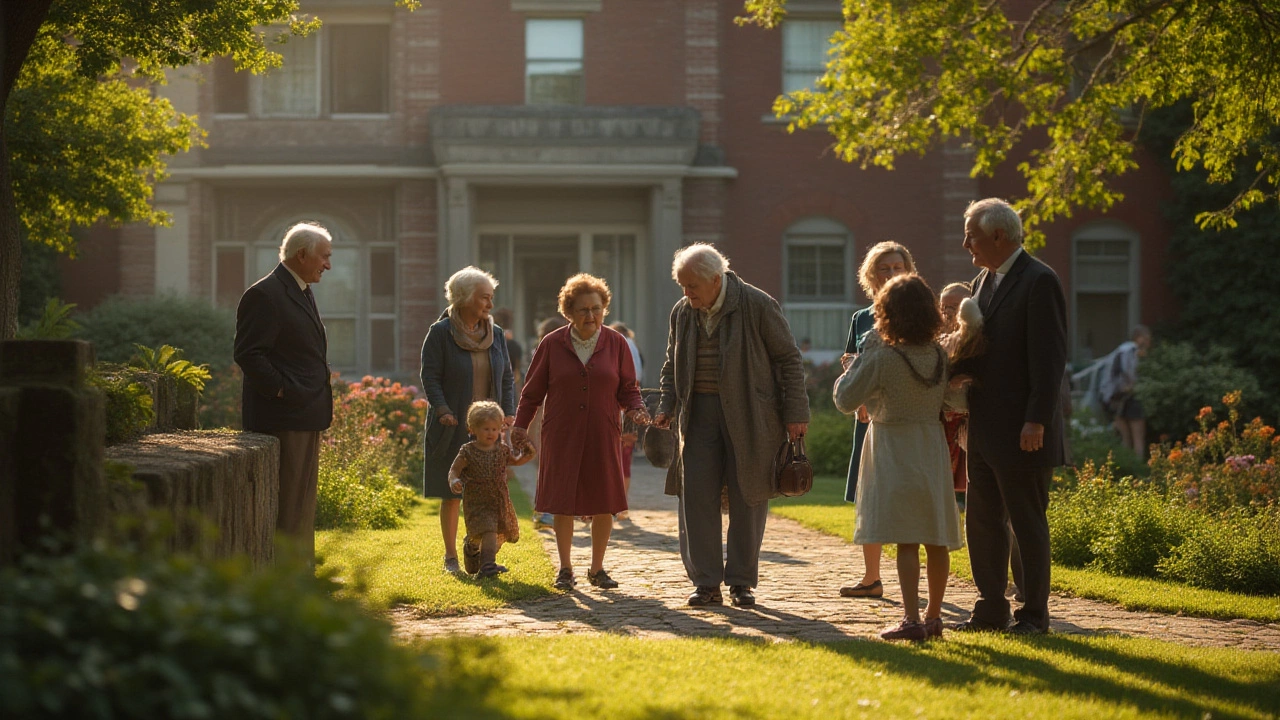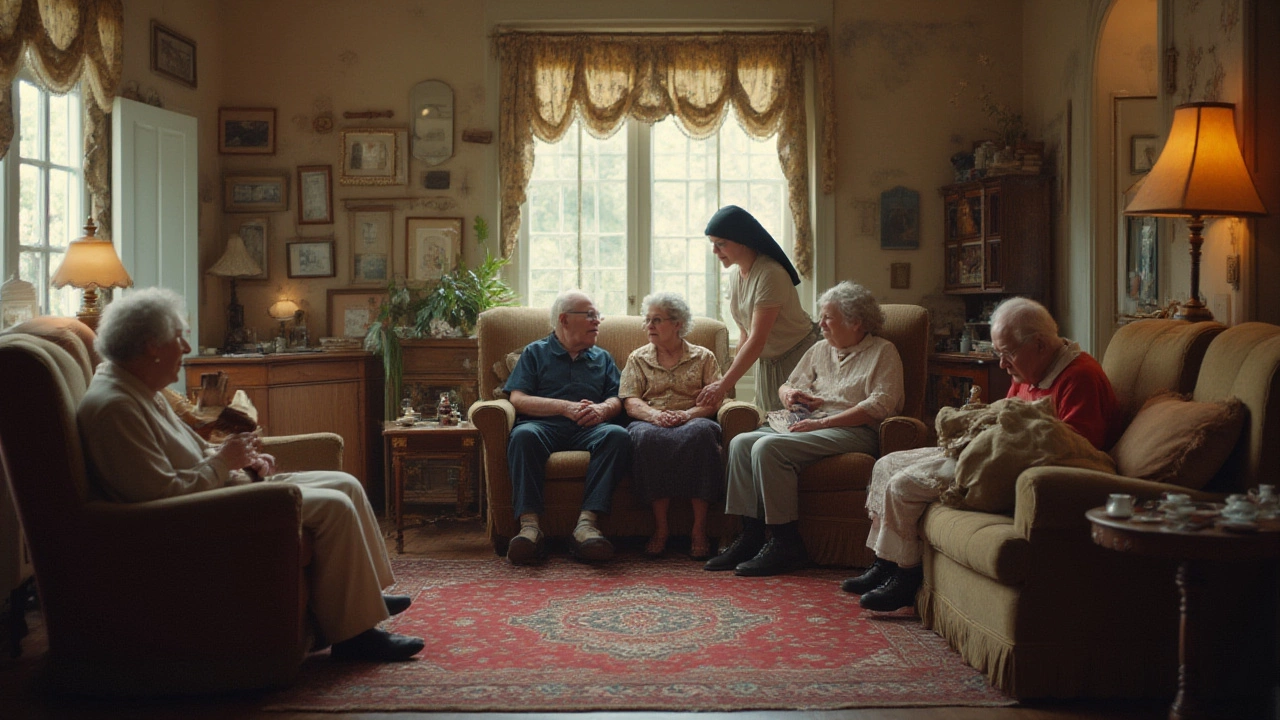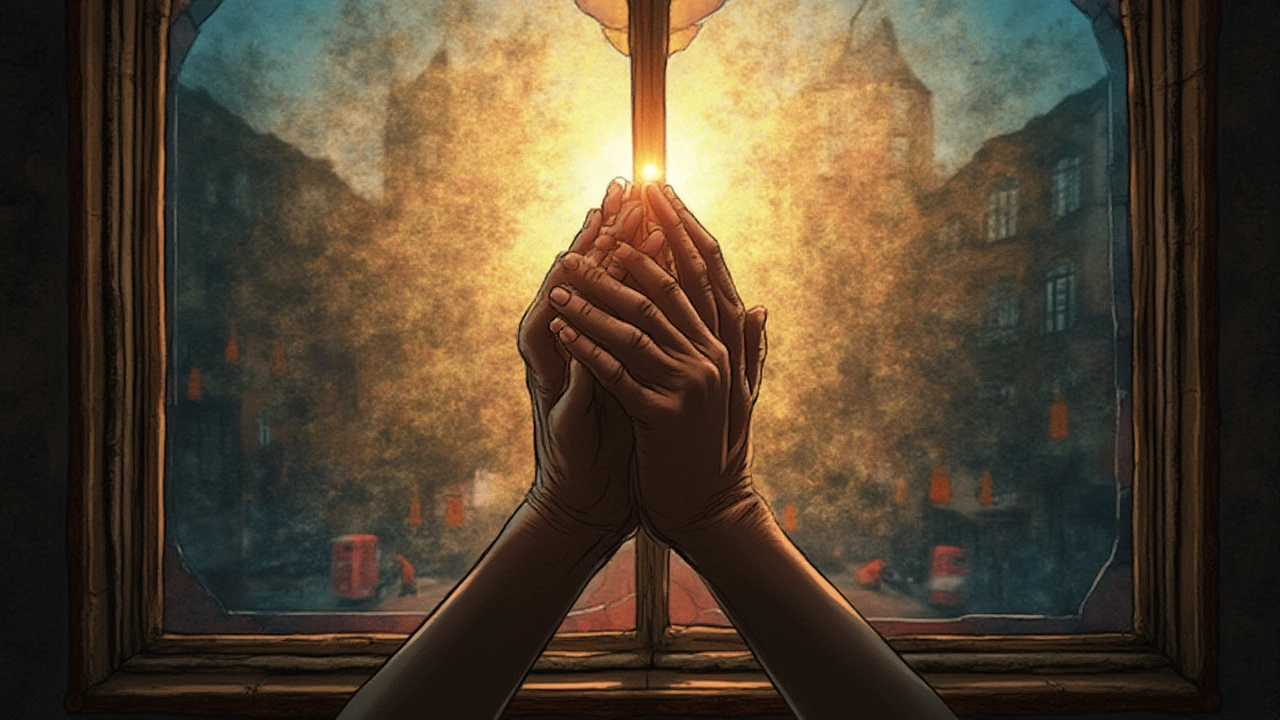Are the Little Sisters of the Poor Leaving Richmond VA? Latest Updates & What It Means
 Jul, 25 2025
Jul, 25 2025
Few stories rattle a city like the news that an institution with roots stretching back generations might be shutting its doors. You always assume places like the Little Sisters of the Poor in Richmond, Virginia are too steadfast, too woven into the community, to ever leave. But now, that assumption is getting a serious shake up. Word’s been spreading—are the Little Sisters of the Poor actually closing shop here?
The Little Sisters of the Poor in Richmond: A Legacy of Caring
If you grew up around Richmond, you’ve probably heard of the Little Sisters of the Poor. They’re not some vague charity or distant organization. These Catholic nuns have been taking care of elderly Richmonders for over 145 years. Way back in 1874, they opened a humble home on Church Hill. The mission? Simple but powerful: give comfort, dignity, and a warm home to seniors who might not have anyone else. No big fancy buildings at first—just pure, old-school compassion.
The Little Sisters’ home on the north side eventually became a landmark for elder care, combining spiritual support with those universal basics: food, safety, respect. Researchers and aging advocates point to their model (offering not just medical care but emotional and social support, too) as one of the earliest examples of “person-centered” care. They stuck to small residential-style quarters, always bustling with activity—birthday parties, afternoon rosary, staffers who would know not just your name but your favorite dessert. Call it old-fashioned, but it’s what made people feel seen and safe there.
The Sisters fund everything without government money, relying on donations, fundraising dinners, and a whole lot of faith. Even during tough times—wars, the Great Depression, pandemics—they didn’t close their doors. The home has weathered all sorts of storms. For decades, the thought of that tradition ending was just unthinkable.
Is the Home Actually Closing? What’s Behind the News
The rumors aren’t just hot air. In spring 2024, the Little Sisters of the Poor announced they plan to close their Richmond home. The word “devastating” gets thrown around a lot, but this really fits. The nuns cited a shortage of Sisters, not enough new vocations to replace those retiring or passing on. Add in increasing regulations for nursing homes and the fact that running a nonprofit senior home is tough in today’s economy—it’s a sad math problem with no easy solution.
The Richmond home isn’t alone here, either. Over the last decade, the Little Sisters have closed several homes in the U.S.—in places like Mobile, Denver, and Cleveland—always for similar reasons. Staffing is tough in elder care, but finding new nuns who feel “the calling” is even harder. According to the Center for Applied Research in the Apostolate (CARA), the number of Catholic sisters in the U.S. has dropped from around 180,000 in 1965 to less than 40,000 today. It’s a gentle crisis echoing in orders all over the country.
When their decision became public, people started asking about alternatives. Some wondered whether another Catholic group or senior living company might take over, but the Sisters said their model is too specific—too rooted in their way of life—to just hand it over like you would an office lease. Residents and families received official notices and started planning next steps. The transition will be gradual, and the Sisters say every resident will be helped to find a safe new home.
Here’s a table showing the scale of this trend nationally:
| Year | Number of Catholic Sisters (U.S.) | Little Sisters' Homes Open Nationwide |
|---|---|---|
| 1980 | 120,000 | 35 |
| 2000 | 75,000 | 30 |
| 2015 | 47,000 | 24 |
| 2024 | 39,000 | 22 |
That dropoff isn’t slowing down, and it’s not just a Richmond problem.

What This Means for Residents and Families
Nothing feels heavier than moving a loved one out of a place that’s been their home, sometimes for years. Imagine your parent or grandparent—settled, making friends, maybe even finding a kind of peace in late life—then suddenly facing transition to a new facility. That’s the actual, human fallout of closures like this.
The Sisters and their staff have promised they’ll support every resident through the change. That means not only helping people find openings in other care homes, but also working with families to handle paperwork, health records, and transport. The process isn’t rushed; it will likely roll out in stages through late 2024 and early 2025. They’re even connecting families with social workers and city agencies, so no one’s left guessing about next steps.
Families who’ve trusted the Sisters say they’re heartbroken. Some can’t imagine finding the same kind of care elsewhere. Anecdotes from past closures support this worry: residents often face loneliness or confusion when moved to bigger, less personal settings. Studies in senior care transitions show that moving elderly residents, especially those with dementia, increases risks of depression and health complications. That’s why advocacy groups, like the Virginia Health Care Association, are calling for as much stability and continuity as possible in the transition process.
There’s extra concern for low-income seniors. The Little Sisters’ home was one of the few in Richmond that helped those on tight budgets, regardless of religion or background. If you or your family are facing this transition, here are some practical tips:
- Start searching for nearby senior or nursing home options early—waitlists can be long.
- Contact community agencies, like Senior Connections or the Department of Social Services, for navigation help.
- Ask the Sisters’ staff for recommendations and introductions to trusted facilities.
- Visit potential new homes in person if possible—don’t just rely on websites or brochures.
- Keep doctors and therapists in the loop so medical transitions are smooth.
Change is stressful, but information and planning make it less scary. Find support groups online or in-person—other families are going through this at the same time as you.
The Impact on Richmond’s Catholic and Nonprofit Community
The Little Sisters of the Poor aren’t just providing nursing home beds—they’re a symbol. Their exit from Richmond is a huge hit for the city’s Catholic community. The home hosts Mass, prayer groups, and all sorts of faith gatherings; many local parishes are tied to the nuns with decades of friendships and service projects. Now, with fewer Sisters and an aging base, there’s an urgent question: who will fill the gap?
For local nonprofits focused on seniors, it’s a wake-up call. Many have smaller scopes than the Little Sisters ever did, and very few focus on providing residential care at little or no cost. The city could see pressure on safety net programs and even public nursing homes, especially if residents need Medicaid beds. Community leaders are talking about new partnerships and coalitions, but solutions aren’t lined up yet.
One hopeful sign? The Sister’s legacy of volunteerism and service is sparking people to step up. There’s been a small surge in volunteer signups and donations at other senior care centers in Richmond this summer. School groups and church youth ministries are promising to pick up simple traditions—holiday caroling, birthday parties, letter-writing—at other facilities. These aren’t perfect replacements, but they show people aren’t ready to abandon their neighbors just because a chapter is ending.
Here’s something you might not know: the Richmond home has hosted generations of “junior volunteers”—teenagers and college students who spent summers reading to residents, planning craft nights, and even just listening. These stories, these memories, are part of why the Sisters are such a loss. If you want to honor that spirit, look up local volunteer needs. The best tributes are the ones that carry traditions forward in small, personal ways.

What Comes Next: Future of Senior Care Without the Little Sisters
So what will fill the space the Sisters are leaving behind? The building itself will probably go up for sale, but the deeper question is about values and approach. Will anyone else offer such hands-on, community-first elder care, or are we moving to a world where institutional nursing homes become the only option?
Experts in senior living are blunt: America isn’t ready for its “age wave.” According to the U.S. Census Bureau, by 2030, more than 22% of Virginians will be age 65 or older. Specialty nonprofit homes like the Sisters’ are vanishing, replaced by for-profit corporations and large healthcare networks. While many do good work, the personal touch—knowing every resident by name, celebrating every little holiday—is harder to scale.
Some say the future involves home-based care, telemedicine, and day programs, but nothing matches the sense of belonging that small, mission-driven homes create. The Little Sisters’ exit is a warning: if we don’t invest in caring for the oldest among us, we’re going to feel the absence in ways that surprise us. More towns will face hard choices, and families will have to step up in new ways.
If you’re hoping to see change, get involved locally. Push city leaders for better funding for elder care, more community-based options, and incentives for nonprofits to run homes. If you have aging parents, start those awkward conversations earlier rather than later. Plan ahead, join support networks, and keep the spirit of the Little Sisters alive: compassion, kindness, and respect for every person—no matter how much money they have or how frail they might be. This approach isn’t just about “seniors”—it’s about what kind of community Richmond wants to be going forward.